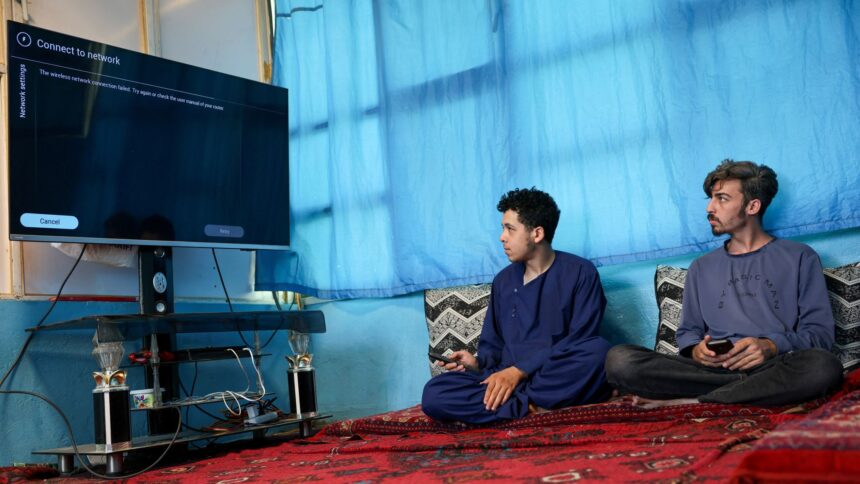After a sudden, nationwide communications blackout, internet and mobile services have been restored across Afghanistan, heralding a cautious return to connectivity for millions of people.
When the blackout first began, it severed Afghans from friends, family and global platforms, intensifying fears of censorship and control. Now, with services returning, the country is cautiously stepping back online—though many remain unsure about the causes and future reliability of the networks.
Earlier this week, telecom monitoring groups reported that mobile networks and internet services were being disrupted across multiple provinces. The outages gradually escalated into a full national shutdown that lasted nearly two days. NetBlocks described the disruption as “a complete internet blackout” that halted essential communications across the country.
Within hours, banking systems ground to a halt, remittances were stalled, and both domestic and international trade suffered. Flights were delayed or canceled in part due to communication failures, and students — especially girls relying on online education — were left cut off from lessons.
Taliban information officials claimed the blackout stemmed from technical failures, assuring the public that services would be restored swiftly. However, no central authority has definitively confirmed whether the shutdown was deliberate or due to infrastructure issues.
In previous instances, authorities have restricted internet access in provinces over concerns about “immoral content.” Many Afghans and observers remain skeptical of the official explanation, citing patterns of control over media and online speech.
The return of connectivity is a critical step for daily life, humanitarian coordination, media reporting, and economic activity. It allows banks, NGOs, and individuals to resume normal operations, and offers hope for reopening closed channels of information.
While the resumption of services has brought relief, concerns remain over the stability of Afghanistan’s digital infrastructure and the possibility of future blackouts. Telecom analysts warn that the outage highlighted the vulnerability of the country’s connectivity, while civil society groups caution that restrictions could be reimposed without warning, particularly in regions where authorities have previously curtailed access.








